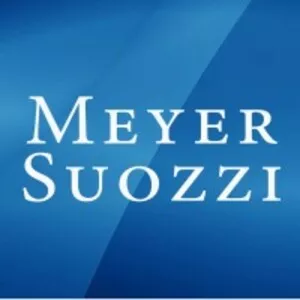An archetypal fiduciary relationship is that between attorney and client, and the handling of client funds is a potential hornets' nest of fiduciary-duty liability for attorneys. In Lin v. Lau, 210 A.D.3d 817 (2d Dep't 2022), the Appellate Division, Second Department, refused to dismiss a lawsuit against an attorney arising from the attorney's alleged mishandling of client funds. The lesson of this case is simple but perhaps too often overlooked: attorneys must never act cavalierly in forming an attorney-client relationship, and must always be exacting when holding client funds in trust. Additionally, this case shows that attorneys who mishandle client funds face liability for breaching their fiduciary duties even in the absence of a formal attorney-client relationship.
The plaintiffs' complaint alleged that they formed a business entity for the purpose of acquiring and developing real property in Flushing, Queens. The defendants, Jay Lau and his law firm ("Lau"), represented the plaintiffs in forming this entity. As part of the representation, Lau allegedly received certain funds to be held in escrow before being disbursed in connection with the plaintiffs' Flushing developing project. However, the plaintiffs' funds were ultimately disbursed by Lau in connection with an entirely different property in another Queens neighborhood. That property, which was located in Elmhurst, was purchased by a different client of Lau. Neither the plaintiffs' business entity nor the plaintiffs themselves had any interest in the Elmhurst property.
The plaintiffs sued, alleging both legal malpractice and breach of fiduciary duty.
First, the court upheld the plaintiffs' legal malpractice claim. The court's analysis of the formation of the attorney-client relationship here is insightful, especially because that relationship imposes fiduciary duties on attorneys. Although an attorney-client relationship can exist even in the absence of a retainer agreement or a fee paid by the client, the client's "unilateral belief does not confer upon him or her the status of client." Lin, at 881. "Rather," the court explained, "to establish an attorney-client relationship, there must be an explicit undertaking to perform a specific task." Id.
Here, the plaintiffs alleged that Lau met with them to form their real-estate investment entity and informed them—orally, not in writing—that "he was representing them, instructed them to wire funds to his escrow account, committed to certain conditions of disbursement of those funds, and advised that he would continue to represent them" on matters related to the Flushing property. Id. This exchange resulted in the formation of an attorney-client relationship, the court held, and Lau failed to prove that the plaintiffs' legal malpractice claim should be dismissed.
Second, the court upheld the plaintiffs' breach of fiduciary duty claim. By holding the plaintiffs' funds in escrow, Lau acted in the capacity of the plaintiffs' escrow agent. That role carries with it fiduciary obligations, the court explained: "An attorney holding funds in escrow owes a fiduciary duty to anyone with a beneficial interest in the trust," and "[a]n escrow agent has a duty not to deliver the escrow funds to anyone except upon strict compliance with the conditions imposed." Id. at 819.
Here, the court held that the plaintiffs sufficiently pled the existence of an oral escrow agreement between them and Lau. Significantly, the court further held that, by virtue of that oral agreement, Lau owed the plaintiffs fiduciary duties even if no attorney-client relationship had existed between them: "[T]he breach of fiduciary duty cause of action was properly pleaded in the alternative [to the legal malpractice claim], in the event that it is ultimately determined that no attorney-client relationship existed or that the Lau defendants' conduct related to the escrow funds was not within the scope of any such relationship."
This is a significant holding. The court allowed the plaintiffs' breach of fiduciary duty claim to proceed regardless of whether an attorney-client relationship existed between them and Lau. In other words, by telling the plaintiffs that he represented them and instructing them to wire him funds that were held in escrow but subsequently mishandled, Lau exposed himself to fiduciary-duty liability even outside of his role as the plaintiffs' attorney.
Lau is a reminder that attorneys must refrain from placing themselves in a precarious position relative to their clients that could result in fiduciary-duty liability exposure—a possibility that exists even in the absence of a formal attorney-client relationship.
Originally Published by 24 February 2023
The content of this article is intended to provide a general guide to the subject matter. Specialist advice should be sought about your specific circumstances.


